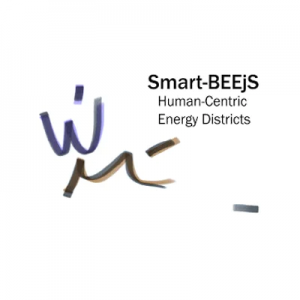Promoting Opportunities for Wide-scale Energy Renewal: Unlocking Potential
Investigadora Responsável
The market uptake of RES depends on a complex combination of political, geographical, economic, social and cultural factors that are specifically intertwined in each locality. In addition, the acceptance and willingness of directly affected stakeholders to support the deployment of RES depends on the perceived fairness about how the decisions are made (procedural justice) and how the benefits are shared (distributive justice). POWERUP adopts a holistic approach towards the market uptake of RES for electricity and provides a set of open source tools and methodologies addressing all these factors, tailoring the RES projects to the local conditions and increaseing their acceptability and market uptake. The tools include a GIS-based decision support tool for initial feasibility assessment, a business model toolkit for reconciling stakeholder requirements and producing equitable business models, and a co-creation toolkit for engaging the stakeholders in co-design of a RES project that is reproducible and tailored to the local needs and conditions. The tools are supported by a social acceptability strategy for RES that provides guidance for considering all social aspects in the decision-making and design process. The POWERUP tools and methodologies will be extensively validated in 4 European regions and replicated in 10 follower regions, covering a variety of conditions all over Europe. The project aims to involve >700 public and private stakeholders and organise 46 workshops, incresing the perception of fairness of the RES business models by 80% and the community acceptance by at least 50%. The project consortium is a team from 5 EU countries that comprises regional energy agencies, public authorities, universities, and research centres and includes leading experts in Social Science and Humanities, Business, Renewable Energies, ICT and data science, legal and regulatory framework, with large practical experience in promotion of the renewable energies uptake.
Informação do Projeto
2025-11-01
2028-10-31
Parceiros do Projeto
Psicologia Social da Transformação
Investigadora
O Mestrado Erasmus Mundus SPOT – Social Psychology of Transformation é um novo programa de estudos internacional que foca a Psicologia Social para a mudança social progressiva, isto é, para a criação de sociedades mais justas, igualitárias e diversas.
Informação do Projeto
2024-10-01
2030-10-31
Parceiros do Projeto
- CIS-Iscte (PsyChange)
- IPU Berlim - Líder (Alemanha)
- Università degli Studi di Padova - (Itália)
- TU - (Estónia)
- UniNis - (Sérvia)
- UNBL - (Bósnia-Herzegovina)
- UNSA - (Bósnia-Herzegovina)
Processo de envolvimento de comunidades e grupos de interesse relativo à remoção de barreiras obsoletas e melhoria da conetividade dos rios na bacia do Alviela
Coordenadora Global
Este projeto tem como objetivo planear e implementar um processo de envolvimento de comunidades e grupos de interesse na bacia do Alviela quanto à remoção de barreiras obsoletas e medidas associadas a serem implementadas pelo GEOTA na região, com o objetivo de melhoria da conetividade do rio Alviela. O processo de envolvimento a propor e implementar terá por base os princípios e ferramentas de participação e co-criação (Reilly et al., 2018; Gato et al., 2014) que têm sido identificados e discutidos pela literatura académica e cinzenta mais recente como relevantes para desenvolver processos participativos não instrumentalizados (Fox et al., 2016; Germaine et al., 2021) e que permitam uma participação efetiva das comunidades afetadas enquanto comunidades de relevância (Batel, 2018; Ryder, Walker, Batel et al., 2023). Estes princípios e ferramentas metodológicas serão adaptados ao contexto em estudo.
An updated framework on community acceptance of renewable energy infrastructures – Practical guidelines for solar plants as a case study
Coordenadora Global
The green energy transition is being promoted around the world as key to tackle climate change. However, as it is increasingly fostered and associated measures implemented, such as the deployment of renewable energy infrastructures (REI), contestation also has risen. Social sciences’ research has attempted to analyze and understand this relevant social issue in the last decades and proposed several and distinct conceptual frameworks for that. The NIMBY (Not in my backyard) framework has been one of the most widespread and well-known frameworks for explaining opposition specifically to REI but is being increasingly questioned by more recent frameworks that emphasize instead the roles of issues of (in)justice in REI related decision-making processes and policies and their impact on negative responses to these infrastructures. However, the proliferation of conceptual frameworks on energy justice and related issues regarding REI has been immense in recent years and it is difficult to, from a practical and empirical perspective, understand how exactly their relevant insights and contributions can be applied to particular REI projects and decision-making. This project aims to contribute to that by conducting a systematic academic and grey literature review of the most recent literature on community responses to renewable energy and associated infrastructures. For this, solar energy and associated infrastructures will be particularly focused, as an expanding and crucial technology within the renewable energy transition, namely in countries like Portugal and Switzerland. Based on this literature review we will then propose an integrated framework to be discussed and validated with key experts and stakeholders in the area. Based on these two previous tasks, the end goal of this project is to deliver a handbook with guidelines for policymakers, energy companies and local communities, on best practices for the successful deployment of REI, particularly solar.
Creating, Optimizing and Planning Positive EneRgy districts: connecting citizens’ energy at different geographical levels
Coordenadora Local
As energy prices have surged throughout Europe, affecting all households (directly or indirectly) through their energy bill, citizens increasingly want to contribute to the renewable energy transition. Next to market parties and government, the role of citizens in energy communities (ECs) in developing Positive Energy Districts (PEDs) can and should be strengthened, and wider groups of citizens can be involved. From this shared problem and understanding across Europe, the project will work on ‘Creating, Optimizing and Planning Positive EneRgy districts while connecting citizens’ energy at different geographical levels’ (COPPER). The first objective is to co-develop P2P citizens-based support- and information systems that are inclusive of energy-vulnerable groups and which foster active energy citizenship. In P2P platforms information is exchanged on the energy transition, support and coaching are given, and citizens will be trained to become civil energy coaches. This will start from specific neighborhoods, and lead to exchanges between different communities and (eventually) in the wider region. Citizens' upport and information systems more generally will be identified, based on desk research and contact with key stakeholders and resident groups in each country (see letters of support). Then these platforms will be evaluated in terms of the autonomous role of citizens, facilities offered, sharing of tools, P2P help and coaching, nature of topics and challenges discussed among residents, degree of inclusiveness, and potential for innovation towards PEDs.
Moreover, PEDs need to be embedded within the wider energy system by creating reliable entities such as organized ECs with intermediary roles, linking supply, demand, and storage in the energy market. The second objective is to develop different models based on certain ‘archetypes’ of energy communities. This means the modeling of differences in both scale and configuration of ECs, in different country settings, to...
Informação do Projeto
2024-02-02
2027-01-31
Parceiros do Projeto
- CIS-Iscte (PsyChange)
- RU - Líder (Países Baixos (Holanda))
- STICHTING HOGESCHOOL VAN ARNHEM ENNIJMEGEN HAN - (Países Baixos (Holanda))
- AALBORG UNIVERSITET - (Dinamarca)
- STIFTELSEN RURALIS INSTITUTT FOR RURAL- OG REGIONALFORSKNING - (Noruega)
- EBO CONSULT AS - (Dinamarca)
- EIGERSUND KOMMUNE - (Noruega)
- SVAHEIA EIENDOM AS - (Noruega)
Young generations trapped in hybrid lifestyles: Challenges in ways of living and working towards the urban green care in Lisbon and Oslo
Investigadora
Focusing on hybrid trends and models of living (e.g. cohousing and coliving and working flexible and multifunctional spaces), HybGen aims to understand which resilient values and survival strategies young adults (20-35 years old) of Lisbon and Oslo are adopting, and how such strategies intersect with urban green care. The goal is to delve into the hybridity of the new urban lifestyles and the blockages of a generation that, despite being one of the best prepared to face the new challenges of the digital transition, is being sacrificed by the urban economic extractive model. A comparative study will be carried out through participatory action research. This includes fieldwork conducted in both cities; participatory workshops with different stakeholders; a joint seminar to discuss and share findings and good practices; an open-access publication. This bilateral initiative will promote the cooperation, exchange and sharing of knowledge and networking between Portuguese and Norwegian entities, identifying best practices and producing useful policy recommendations for common problems.
Informação do Projeto
2024-02-01
2024-12-31
Parceiros do Projeto
- DINAMIA'CET-Iscte (CT) - Líder
- NULS - (Noruega)
Assistência Sexual: Representações sociais e recomendações para políticas públicas
Investigadora
A assistência sexual - atividade em que profissionais prestam serviços sexuais a pessoas com deficiência - é um tema de investigação pioneiro em Portugal. A nível europeu existem associações que promovem a assistência sexual em vários países e em alguns deles é um serviço reconhecido. Em Portugal não existe nenhuma associação criada com este objetivo. No entanto, os trabalhadores do sexo prestam serviços sexuais a clientes com deficiência. Para dar resposta ao interesse de algumas pessoas com deficiência física em recorrer à assistência sexual, a equipa de investigação, que tem uma vasta experiência no estudo de diferentes eixos de opressão social, identificou a necessidade de compreender as representações sociais da população portuguesa relativamente à assistência sexual e de iniciar um debate informado para delinear recomendações de políticas públicas.
Intersections of right-wing populism and (un)just rural energy transitions in Portugal as communicative and socio-spatial practices
Investigadora Responsável
Um dos principais problemas que as sociedades contemporâneas globalizadas e climaticamente alteradas enfrentam é o aumento da pressão nos territórios, especialmente nas zonas rurais. São exemplos dessa pressão os desastres naturais induzidos pelas alterações climáticas e conflitos políticos que levam à migração de indivíduos e comunidades, assim como as políticas para a construção de infraestruturas energéticas renováveis de larga escala, como parques eólicos e solares. De fato, um crescente corpo de pesquisa das ciências sociais tem-se focado em compreender por que é que, apesar de as pessoas tenderem a concordar com a geração de energias renováveis de uma maneira geral, é frequente encontrar resistência local à construção de infraestruturas de energias renováveis [1;2]. Esta pesquisa tem tentado compreender a oposição local de forma a ultrapassá-la [2]. Contudo, abordagens mais recentes e críticas começaram a apontar que (1) o aumento da oposição local pode dever-se às transições energéticas renováveis poderem implicar muitas das mesmas injustiças sociais e ambientais que o status quo não-renovável [3; 4; 5; 6]; e que (2) o aumento da comunicação e disseminação de discursos do populismo de extrema-direita pode também estar a fomentar a negação das alterações climáticas e resistência associada às transições energéticas renováveis [7; 8; 9; 10; 11]. No entanto, estas duas linhas de investigação não têm sido articuladas de forma a explorar se e como a organização comunicativa e sócio espacial das chamadas transições energéticas renováveis, até agora sobretudo materializadas na construção imposta e não-participada de infraestruturas de larga escala, pode também contribuir para a adesão das comunidades locais a molduras populistas de extrema-direita tal como comunicadas pelos meios de comunicação social. Estas molduras, de que são exemplo discursos de anti elitismo, nacionalismo e nativismo [11; 12], podem, por seu turno, fomentar a resistência local não só em relação ...
Human-Centric Energy Districts: Smart Value Generation by Building Efficiency and Energy Justice for Sustainable Living
Coordenadora Local
The EU has used the Strategic Energy Technology Plan to transfer power to consumers, by decentralising the energy ecosystem by establishing “100 positive energy districts by 2025 and 80% of electricity consumption to be managed by consumers in 4 out of 5 households”. The SMART-BEEjS recognises that this requires the systemic synergy of the different stakeholders, balancing attention towards technological and policy oriented drivers, citizens and society needs, providers and technology capabilities and value generation system synergies in order to deliver the transition without leaving large parts of the population behind. Smart-BEEjS covers all angles of this eco-system, to train a generation of transformative and influential champions in policy design, techno-economic planning and business model innovation in the energy and efficiency sectors, mindful of the personal and social dimensions, as well as the nexus of interrelation between stakeholders in energy generation, efficiency and management.
Informação do Projeto
2019-04-01
2023-03-31
Parceiros do Projeto
- CIS-Iscte (PsyChange)
- TNTU - Líder (Reino Unido)
- Eurac Research - (Itália)
- TU WIEN - (Áustria)
- ITC - (Espanha)
- UNIVERSITAT BASEL - (Suíça)
- WU - (Países Baixos (Holanda))
- RWI - (Alemanha)
Multi-sectoral approaches to Innovative Skills Training for Renewable energy And sociaL acceptance
Coordenadora Local
he project MISTRAL, funded by European Union within the Horizon2020 program, involves 15 linked PhD studentships based at 7 European universities with a variety of industrial placements, summer schools and shared training. The project aims to nurture a new generation of researchers who can effectively evaluate the complexity of social acceptance issues facing the deployment of renewable energy infrastructure and propose innovative solutions in a variety of research, government and business contexts. MISTRAL will do this by fostering a vibrant inter-disciplinary environment to change the way we understand and respond to declining social acceptance of renewable energy infrastructure and engage a wider range of inter-sectoral stakeholders to develop innovative solutions. It will also provide an innovative training environment where young researchers can develop advanced skills in research and transferable skills, benefit from a range of diverse secondment experiences and debate current issues with some of the world leading researchers in the field, in order to develop advanced capacities for progressing Europe’s energy transition.
Informação do Projeto
2018-09-01
2022-08-30
Parceiros do Projeto
- CIS-Iscte (PsyChange)
- THE QUEEN'S UNIVERSITY OF BELFAST - Líder (Reino Unido)
- UNEXE - (Reino Unido)
- UNIVERSITAET ST. GALLEN - (Suíça)
- UCC - (Irlanda)
- DANMARKS TEKNISKE UNIVERSITET - (Dinamarca)
- IZES GGMBH - (Alemanha)

 English
English





